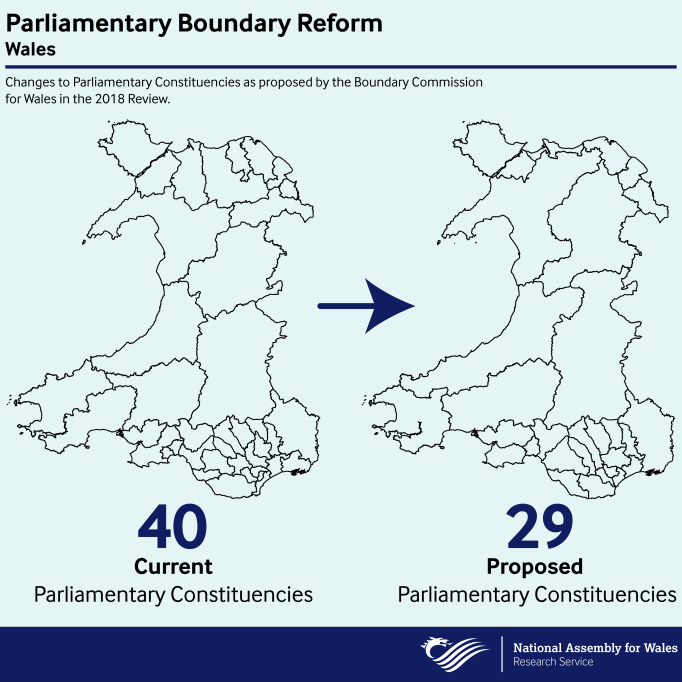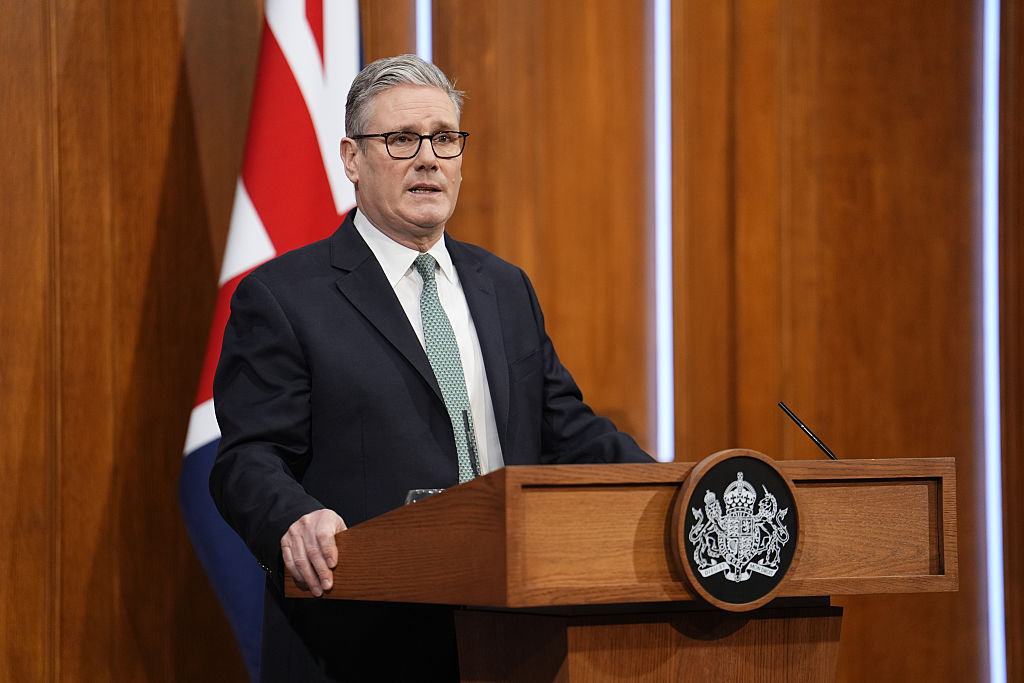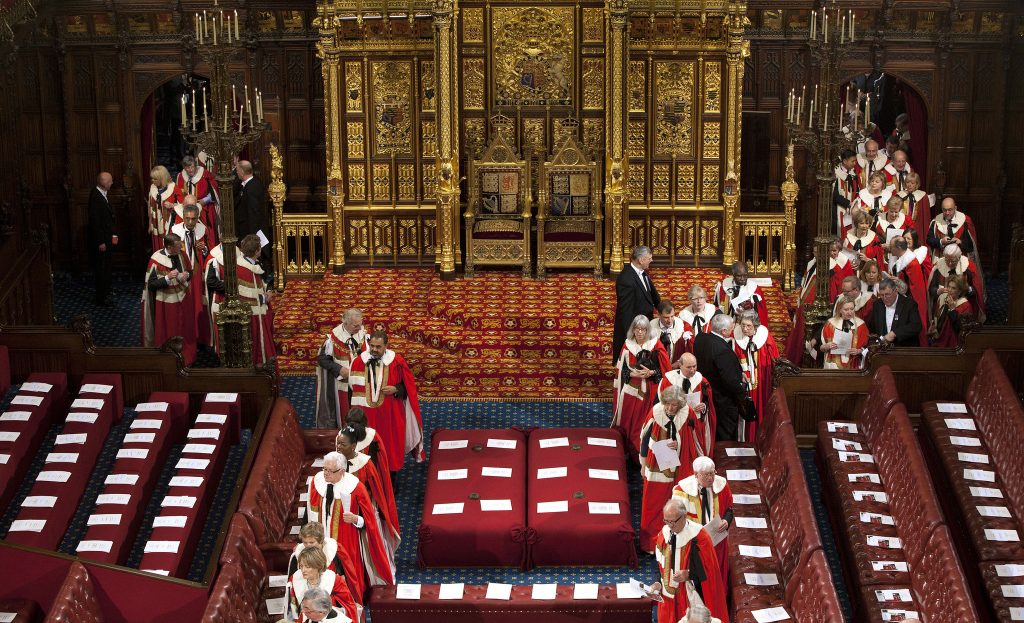Politics
ERS condemns Westminster seats cut

THE ELECTORAL Reform Society have condemned a ‘dangerous U-turn’ from the Prime Minister, with news emerging that the PM is set to cut the number of MPs.
Reports had initially suggested that the PM had dropped plans to force through the cut in MPs linked with the boundary review.
However Theresa May now appears to be rejecting calls to keep the number of MPs at 650 – despite the Public Administration and Constitutional Affairs Committee warning today that moves to cut numbers to 600 are unlikely to secure the backing of MPs.
The ERS are warning that the cut in MPs actually represents a cut in backbenchers if there are no plans to cap/cut the size of the executive or ‘payroll vote’ correspondingly.
At the same time, voters will lose European representation while Parliament gains more powers after Brexit. Yet the Commons will have less capacity to scrutinise those powers. The ERS argue that places a greater burden on our democracy while posing significant risks for policy making.
ERS research in 2016 showed that in a smaller, 600-seat Commons, nearly one in four (23%) of MPs would be on the government payroll if the parties’ proportion of MPs – and the total number of ministers and whips – stayed the same – an all-time high, and up from the 21% at present (figures as of November 2016).
Darren Hughes, Chief Executive of the Electoral Reform Society, said: “Without a corresponding cap on the ‘payroll vote’, this reduction in MPs represents an undemocratic cut in the power of backbenchers to hold government to account.
“This dangerous u-turn smacks of constitutional injustice. Cutting backbenchers at the same as bolstering the executive looks to many like a worrying power-grab.
“Parliament will have a whole raft of new powers after Brexit – yet less capacity to scrutinise those powers. That places a greater burden on our institutions, while posing significant risks for policy making.
“Meanwhile it’s just common sense that this cut cannot go ahead while the House of Lords remains the second largest chamber in the world with around 800 members. If the government are concerned about reducing the cost of politics, they would do well to stay with the over-sized second chamber.
“Voters need real representation in the Commons to provide the essential scrutiny and capacity we need: both for now and when we gain new power after Brexit.
“Far from reducing political representation and weakening voters’ voices, the Prime Minister should cancel the proposed cut in MPs and move forward with fair boundaries based on a properly resourced Commons.”
After the expenses scandal in the last decade, there were calls to cut the cost of politics and one of the proposals was to reduce the size of the House of Commons. In 2011. legislation was passed to reduce the number of MPs from 650 to 600, but the review of constituency boundaries that would have made the recommendations necessary to implement these changes was halted because of disagreements within the previous Government over constitutional reform.
After last year’s General Election, Carmarthen West and South Pembrokeshire MP, Simon Hart, bemoaned the fact that reform of constituency boundaries could be a lost opportunity for reform, saying: “We need to look at the electoral system and equalise the votes between different constituencies. 110,000 voters on the Isle of Wight get one Conservative MP. 120,000 voters in three Valleys seats get three Labour MPs.”
Under the law as it still stands, a new review by the Boundary Commissions must be completed by October 2018. It must again divide the UK into 600 constituencies. Whether the UK Government is strong enough to force those changes through Parliament as it lurches daily from self-imposed disaster to another crisis is – at best – uncertain.
The Conservative Government is dependent upon the votes of the DUP to get primary legislation through the House of Commons. The coalition government, in a far stronger position, failed to get changes through due to disagreements within it on the direction and scope of constitutional reform. Last year, the DUP – which, in common with other Unionist parties, has long benefited from electoral favours from Westminster governments of both colours – asked for the boundaries proposed for Northern Ireland to be redrawn. Its unease followed analysis that revealed that the DUP would be replaced by Sinn Fein as Northern Ireland’s largest party at a General Election which followed the voting pattern of last June’s General Election.
Those fears appear to have been allayed by a not at all self-serving new boundary proposal, announced last month, which would ensure the DUP is likely to remain Northern Ireland’s largest Westminster party. Surprisingly, that concession seems to have addressed the DUP’s concerns about the future of the UK’s parliamentary democracy.
Politics
Ceredigion council tax expected to rise by 4.7 per cent

A BETTER financial settlement for Ceredigion from the Welsh Government along with a fresh grant is expected to see council tax bills in the county rising by less than five per cent this year, far below previous fears of a rise as high as nearly nine.
Last year, for the 2025-’26 budget, Ceredigion saw a council tax rise of 9.3 per cent.
While council tax makes up a proportion of the council’s annual revenue, a crucial area of funding is the Aggregate External Finance (AEF) rate from Welsh Government.
Ceredigion was to receive a 2.3 per cent increase on its settlement, some £3,388,000 for a total of £150,670,000, placing it at joint 13th of the 22 local authorities in Wales.
Following a later Welsh Government and Plaid Cymru agreement additional funding for local government was secured, giving Ceredigion additional funding.
Back in November, before the increased settlement was announced, Ceredigion Leader Cllr Bryan Davies said that early estimates indicated that an 8.9 per cent increase in council tax would be necessary, but an improved position of 6.9 per cent had been indicated as a result of a further modelling of service cost pressures and operational savings.
Following the improved settlement, members at the January meeting of Cabinet heard from Cabinet Member for Finance and Procurement Services Cllr Gareth Davies a recommendation for a 4.75 per cent council tax increase as part of a draft budget requirement of £221.493m was being mooted.
That position has improved again, following financial support towards the Mid and West Wales Fire Service Levy, members of the February 3 meeting of the council’s corporate resources overview and scrutiny committee heard, the funding now dropping the expected council tax increase to 4.7 per cent, equivalent to an extra £7.39 per month for the average Band D property for the next financial year.
Members of the committee agreed to note the 4.7 per cent figure, with the final council tax recommendation being considered by Cabinet on February 10; the final decision on the budget being made by full council on March 2.
international news
Mandelson quits Lords amid police probe over Epstein links

Peter Mandelson has announced he will retire from the House of Lords with immediate effect, as mounting political and legal pressure grows over claims he shared sensitive government information with convicted sex offender Jeffrey Epstein.
Parliamentary officials confirmed that Peter Mandelson formally notified the Clerk of the Parliaments of his decision, ending his membership of the upper chamber from Tuesday (Feb 4).
The move follows reports that the Metropolitan Police Service is reviewing allegations of possible misconduct in public office connected to emails said to have been forwarded to Epstein while Mandelson was business secretary during the 2008–09 financial crisis.
Downing Street has confirmed that material has been passed to police after an initial Cabinet Office review.
Government fury

Prime Minister Keir Starmer told cabinet colleagues Mandelson had “let his country down”, according to No 10, and officials are now drafting legislation that could strip him of his peerage entirely.


Removing a life peer is rare and would require an Act of Parliament.
If passed, Mandelson would lose the title “Lord” altogether — an extraordinary step that has only been considered in the most serious cases.
Senior ministers have described the alleged passing-on of market-sensitive government discussions as “disgraceful” and a “betrayal of trust”.
What police are examining
Misconduct in public office is a centuries-old common law offence that applies where someone in a position of public trust wilfully abuses that role. It carries a maximum sentence of life imprisonment.
Investigators will assess whether confidential information — particularly relating to government financial policy during the crash — was shared without justification and whether safeguards were breached.
At this stage, no charges have been brought.
Mandelson has previously apologised for maintaining contact with Epstein after the financier’s conviction, saying he regrets “ever having known him”, but he has disputed some of the latest claims and has not commented directly on the police review.
Political shockwaves
Opposition parties are pushing for further disclosure of documents relating to Mandelson’s vetting and his past roles.
Conservatives are expected to force a Commons vote demanding more information, while Liberal Democrats have called for a public inquiry.
Several MPs have also suggested Mandelson should be removed from the Privy Council.
The developments mark a dramatic fall for one of Labour’s most influential political figures of the past three decades, who only months ago was serving as the UK’s ambassador to Washington.
Now, with police examining evidence and legislation being prepared to remove his title, his public career appears effectively over.
More updates are expected as the investigation continues.
Community
Cilgerran Church in Wales school petition to be heard

A PETITION opposing proposed changes for a north Pembrokeshire school is to be heard by councillors later this week.
At last May’s meeting, Pembrokeshire County Council considered a report of the School Modernisation Working Group which outlined the findings of a review of education provision in the Preseli area.
A later July meeting backed a general consultation to discontinue Cilgerran Church in Wales Voluntary Controlled School, and to establish it as a 3-11 community school.
“In particular, the review considered the extent of surplus school places in the area, set against a significant decline in the pupil population,” the council in its consultation has said.
The consultation closed on January 30.
Hundreds have opposed the proposed changes, with a petition, on the council’s own website opposing the changes recently closing after gaining 391 signatures.
Any petition of more than 100 signatures triggers a debate at one of the council’s scrutiny committees, in the case of Cilgerran that debate taking place at Pembrokeshire County Council’s February 5 schools and learning overview and scrutiny committee.
The Cilgerran e-petition, created by Louise Williams, raised concerns including the school could become part of a federation, a loss of permanent head teacher on site, a shared head teacher would have to oversee several schools, loss of funding control and the ability to maintain the school’s current healthy and stable funding, and a loss of commitment to the church, in turn could impact on the school’s and pupils values, beliefs and cultural beliefs.
It said: “Ysgol Cilgerran VC school has strong links with the Church community in Cilgerran and we believe this will have a negative impact on the children who attend the school, the community of Cilgerran and the links between the two.
“We are proud of our school ethos and values which are strengthened by our links with the church. The school has close and strong relationships with our Church in Wales federation governors one of which is also our safeguarding governor.
“Our Church Federation governors work closely with the school and are regular visitors to the school and the children. They provide vital support and guidance to the school and have a positive impact on the Children’s education. We believe these links will be weakened by this proposal to remove our VC status and we believe this is an un-necessary action.”
The proposals for Cilgerran are part of a wide range of potential education changes in the county.
Two petitions, opposing the potential closures of Manorbier and Ysgol Clydau schools, were recently heard at full council and a further petition opposing the potential closure of Stepaside School has recently been launched, which has generated enough support to be heard at a future council meeting.
-

 Health6 days ago
Health6 days agoConsultation reveals lack of public trust in health board
-

 News7 days ago
News7 days agoCaldey still unsafe, survivors warn — despite Abbey’s reform claims
-

 Community6 days ago
Community6 days agoPembrokeshire students speak at national Holocaust Memorial Day event
-

 News17 hours ago
News17 hours agoPrincess of Wales visits historic Pembrokeshire woollen mill
-

 News7 days ago
News7 days agoKurtz raises Gumfreston flooding in the Senedd as petition deadline nears
-

 Crime5 days ago
Crime5 days agoPembroke man accused of child sex offences sent to Swansea Crown Court
-

 Education7 days ago
Education7 days ago‘Vulnerable teen’ questioned by police at Milford Haven School
-

 Education7 days ago
Education7 days agoAttendance concerns at Milford School reflect wider issue raised at the Senedd









































